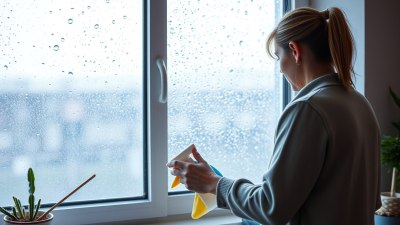Why Some Days Feel Like You’re Walking Through a Poem (Science Behind Vibes)
Explore the science of emotions and how certain days evoke poetic vibes through mood and perception.

Have you ever had one of those days where everything seems to flow beautifully, each moment resonates with meaning, and the world feels like a perfectly crafted poem? It’s as if your surroundings, emotions, and experiences align to create a symphony of poetic beauty. But why does this happen? What is the science behind those days that feel incredibly rich and vibrant? In this article, we will explore the phenomenon of 'vibes' and how various psychological and environmental factors contribute to such experiences.
The Nature of Vibes
The term 'vibe' has become a popular way to describe the feeling or atmosphere that one perceives in a situation or around a person. Vibes can be positive, negative, or neutral, and often encompass a wide range of emotional responses. These feelings can be influenced by our mood, the environment, and our personal experiences. Research in psychology suggests that these vibes are not merely abstract concepts; they have biological underpinnings that affect how we perceive the world. Understanding these factors can help us appreciate why some days feel particularly poetic.
The Role of Neurotransmitters
Our brain chemistry plays a critical role in determining our mood and perception. Neurotransmitters like dopamine, serotonin, and oxytocin significantly influence how we feel. On days where we feel 'vibey', our body might be releasing these chemicals in higher quantities. For instance, serotonin is often referred to as the 'happiness hormone', and its presence can lead to feelings of joy and well-being. Similarly, dopamine, which is linked to pleasure and reward, can enhance our perception of beauty in our surroundings. The release of these neurotransmitters can create a sense of euphoria, making the day feel as if it’s infused with poetic qualities.
The environment we find ourselves in can dramatically impact our mood and how we experience our surroundings. Natural settings, such as lush forests, serene lakes, or stunning sunsets, are often cited as places that evoke feelings of tranquility and inspiration. Research has shown that spending time in nature can reduce stress and promote feelings of well-being, largely due to the calming effects of natural stimuli. On days filled with awe-inspiring landscapes or beautiful weather, our brain’s response can lead to heightened emotions, making everything feel more profound and poetic.
Human interactions can significantly influence our mood and experiences. Positive social interactions, whether they are casual encounters with friends or meaningful conversations with loved ones, can release oxytocin in our bodies, leading to feelings of connection and warmth. When we share moments, laughter, or experiences with others, our perception of these moments becomes magnified. A shared experience often carries a deeper significance, turning ordinary moments into somewhat poetic recollections. Days spent with those we connect with deeply tend to evoke richer emotional responses and seemingly poetic vibes.
Mindfulness—the practice of being present in the moment—can also significantly impact how we perceive our daily experiences. When we practice mindfulness, we become more aware of our environment, emotions, and thoughts. This heightened awareness allows us to appreciate subtle details we might normally overlook. A simple walk can transform into a moment rich with feelings and connections when one embraces mindfulness. This is often why those poetic days are filled with vivid memories, as we consciously engage with what is happening around us, creating lasting impressions.
Art and culture can shape our emotions and perceptions, leading to days that feel infused with poetic qualities. Engaging with literature, music, or art can evoke deep emotional responses and inspire us to see the world differently. For many, reading a beautiful poem, listening to an evocative piece of music, or viewing stunning artwork can alter their emotional state, leading to poetic vibes throughout the day. Exposure to creativity can encourage us to reflect on our experiences and the world around us through a more artistic lens.
Our personal history also shapes how we interpret our experiences. Days when we are reflecting on fond memories or contemplating meaningful aspects of our lives often come across as more vivid or poetic. The human brain has a unique ability to create narratives, connecting separate experiences into cohesive stories. During such moments of reflection, we often find deeper meaning in our day-to-day lives, evolving mundane occurrences into poetic insights.
Certain lifestyle choices can also influence our perception of the world and our daily vibes. Diet, sleep, and physical activity all play crucial roles in regulating our mood and feelings. A balanced diet can boost brain function, enhancing our overall sense of well-being. Good quality sleep is essential for emotional regulation; sleep deprivation can lead to irritability and a negative outlook, whereas restorative sleep can facilitate a more optimistic perspective. Exercise, too, has been shown to increase the production of neurotransmitters that promote feelings of happiness, making physically active days feel particularly enriching.
Recognizing the factors that contribute to poetic days allows us to seek out these experiences more intentionally. Creating opportunities for connection, spending time in nature, practicing mindfulness, and engaging with the arts are all ways to enhance our appreciation for the beautiful moments in life. By fostering an environment that aligns with these factors, we can cultivate more poetic days, transforming the ordinary into the extraordinary.
In conclusion, the experience of feeling like you’re walking through a poem on certain days can be attributed to a combination of psychological, biological, and environmental factors. Neurotransmitters, social connections, mindfulness practices, cultural influences, and personal reflections all play critical roles in shaping our perception of beauty and meaning in life. By understanding and embracing these elements, we open ourselves up to a richer, more vibrant experience, encouraging us to find poetry in the everyday moments of our lives. So, the next time you find yourself enjoying a day that feels particularly poetic, take a moment to reflect on the factors that contributed to that experience and learn how to cultivate more of these moments in the future.











